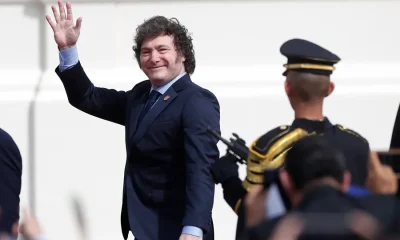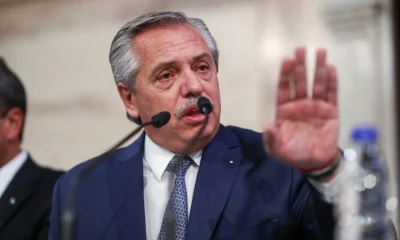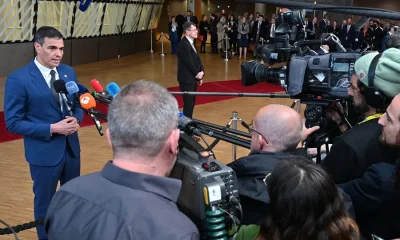International
Spain assures that no one will intimidate her in her support of the Palestinians
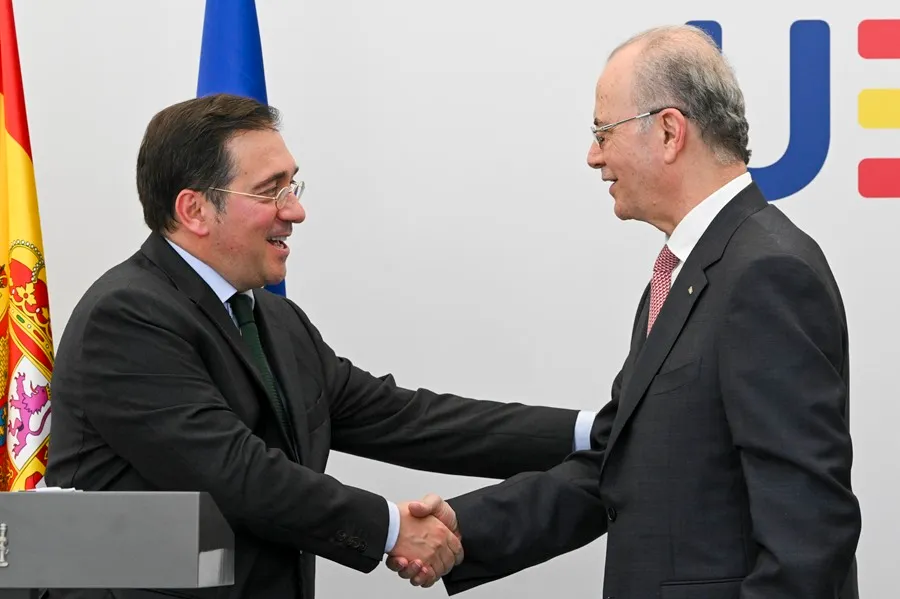
Spain made it clear this Sunday that no one is going to “medren” it in its support of a ceasefire in Gaza and the entry of humanitarian aid into the Strip, after Israel broadcast a video in which it reproaches the country for its imminent recognition of the Palestinian State.
“Spain has been very firm condemning the attacks of Hamas and demanding the release of all the hostages, but Spain has also been very firm and will continue to be demanding a ceasefire and the knowledge of help from the land points,” stressed the Spanish Minister of Foreign Affairs, José Manuel Albares.
At a press conference in Brussels after meeting for the first time in person with the Palestinian Prime Minister, Mohamed Mustafa, he stressed that “no one is going to beurther us in it.”
Albares guaranteed Spain’s support for the Palestinian National Authority and said that next Wednesday he expects to receive Mustafa in Spain, a day after the country has materialized the recognition of the Palestinian State.
The head of Spanish diplomacy stressed that the Palestinian people “have the right to have a State, just as the people of Israel have that right.”
“Both have to coexist in peace, security and good neighborliness. The recognition of the State of Palestine is of justice for the Palestinians, it is the best guarantee of security for Israel and is indispensable to achieve peace in the region,” he said.
Asked about the video shared on social networks by the Israeli Foreign Minister, Israel Katz, in which he reproaches that Spain is going to recognize the Palestinian State, Albares replied that it is “scandalous and execrable.”
“It is scandalous because it is known from all the world, especially from my Israeli colleague, that the Government of Spain has condemned the terrorism of Hamas from the first moment and in all its actions,” he said.
The video, which lasts 18 seconds, starts with the flag of Spain and some of the images of the attacks of the Palestinian Islamist group Hamas on October 7 appear, alternating with those of two people who imitate flamenco dancers, while the phrase “Hamás: ‘Gracias España’” appears overprinted.
For Albares, the video is also “execrable” for the use he makes of flamenco, “a universal art, an open music, a music that dialogues and, therefore, a universal language that brings us closer to all the peoples of the world and that inspires us,” he said.
The minister also referred to other statements criticized by Israel, those made on Saturday by the Spanish head of Defense, Margarita Robles, in which he considered that what is happening in Gaza “is a real genocide,” and said that it was “an opinion” on an issue that is being elucidated by the International Court of Justice.
In that context, Albares alluded to the precautionary measures of that UN court for Israel to put an immediate end to its military offensive in Rafah and recalled that its decisions are “mandatory for all parties, they must be complied with and thus avoid the loss of more human lives and so much unnecessary suffering.”
Mustafa, for his part, praised “the courageous decision taken by Spain” to recognize Palestine as a State and urged the rest of the European countries that have not yet taken this step to do the same as a gesture to “end the serious injustice to which the Palestinian people have been subjected for decades.”
He was also “fully convinced” that “a large number of European countries” will recognize the State of Palestine “in the near future.”
Before Mustafa, Albares emphasized the “important role” played by the Palestinian National Authority in the West Bank and guaranteed him the political and financial support of Spain.
The head of Spanish diplomacy said that, when peace returns to Gaza, both that territory and the West Bank “must be placed under a single Palestinian National Authority.”
He also defended that there is a “massive financial plan” to rebuild Gaza, that the Strip is connected by a corridor with the West Bank and that the capital of the Palestinian State is East Jerusalem.
Albares participates today and tomorrow with the Member States of the European Union and Arab countries in different meetings “to outline the next steps in our efforts for peace.”
International
Police investigate deaths of Rob Reiner and wife as apparent homicide
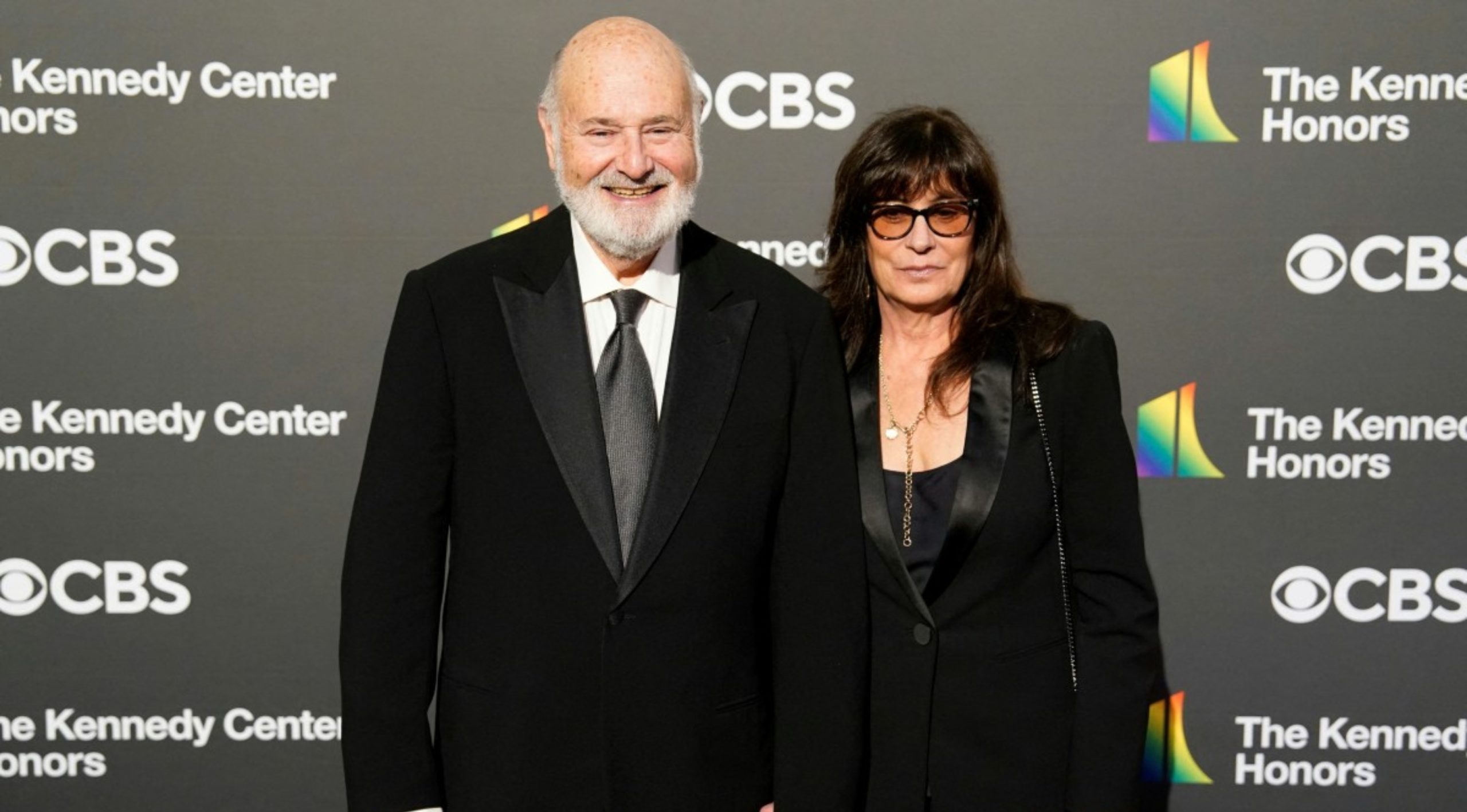
The Los Angeles Police Department (LAPD) is investigating the deaths of Hollywood actor and filmmaker Rob Reinerand his wife as an “apparent homicide,” amid a wave of tributes to the director of classics such as When Harry Met Sally.
According to U.S. media reports on Sunday, Rob Reiner and Michele Singer Reiner were found dead at their Los Angeles mansion with what appeared to be stab wounds.
Several political figures shared messages of condolence following the reported deaths of the director of A Few Good Menand his wife.
While the LAPD did not officially confirm the identities of the victims, it stated that homicide detectives were dispatched to the Reiner residence.
“At this time, no additional details are available and the investigation into an apparent homicide is ongoing,” the Los Angeles Police Department said in a statement posted on social media.
LAPD Deputy Chief Alan Hamilton told reporters that no arrests have been made and that no individuals are currently being questioned as suspects.
“I’m not going to confirm whether anyone is being questioned at this moment or not. We are going to try to speak with as many family members as we can,” Hamilton said.
CNN reported that a family spokesperson confirmed the deaths of Reiner and his wife.
California Governor Gavin Newsom, former U.S. President Barack Obama, and former Vice President Kamala Harrisissued statements expressing their condolences.
International
U.S. and Mexico Reach Deal to Address Water Deficit Under 1944 Treaty
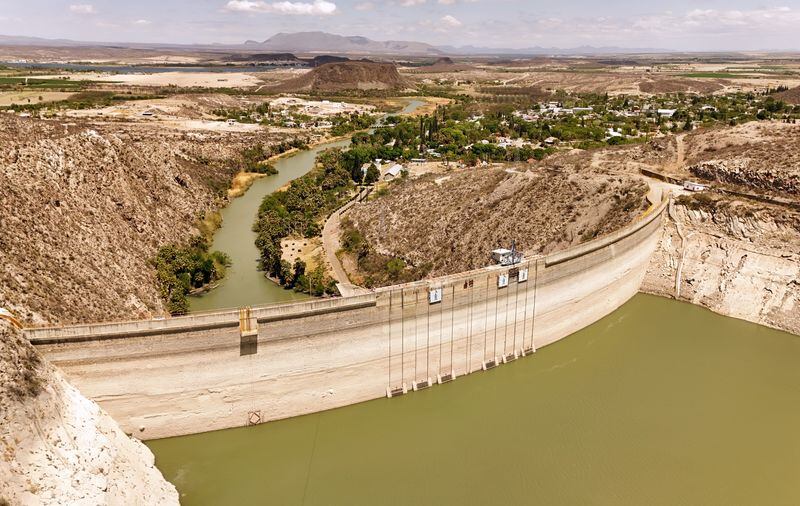
The United States and Mexico have reached an agreement to comply with current water obligations affecting U.S. farmers and ranchers and for Mexico to cover its water deficit to Texas under the 1944 Water Treaty, the U.S. Department of Agriculture said in a statement.
The department уточified that the agreement applies to both the current cycle and the water deficit from the previous cycle.
On Monday, U.S. President Donald Trump accused Mexico of failing to comply with the water-sharing treaty between the two countries, which requires the United States to deliver 1.85 billion cubic meters of water from the Colorado River, while Mexico must supply 432 million cubic meters from the Rio Grande.
Mexico is behind on its commitments. According to Washington, the country has accumulated a deficit of more than one billion cubic meters of water over the past five years.
“This violation is severely harming our beautiful crops and our livestock in Texas,” Trump wrote on Monday.
The Department of Agriculture said on Friday that Mexico had agreed to supply 250 million cubic meters of water starting next week and to work toward closing the shortfall.
Agriculture Secretary Brooke Rollins, quoted in the statement, said Mexico delivered more water in a single year than it had over the previous four years combined.
Trump has said that if Mexico continues to fall short of its obligations, the United States reserves the right to impose 5% tariffs on imported Mexican products.
Mexico’s Deputy Foreign Minister for North America, Roberto Velasco, said that a severe drought in 2022 and 2023prevented the country from meeting its commitments.
International
Several people shot in attack on Brown University campus

Several people were shot on Saturday in an attack on the campus of Brown University, in the northeastern United States, local police reported.
“Shelter in place and avoid the area until further notice,” the Providence Police Department urged in a post on X. Brown University is located in Providence, the capital of the state of Rhode Island.
U.S. President Donald Trump said on his social media platform Truth Social that he had been briefed on the situation and that the FBI was on the scene.
At 5:52 p.m. local time (11:52 p.m. GMT), Brown University said the situation was still “ongoing” and instructed students to remain sheltered until further notice.
After initially stating that the suspect had been taken into custody, Trump later posted a second message clarifying that local police had walked back that information. “The suspect has NOT been apprehended,” the U.S. president said.
-

 International4 days ago
International4 days agoWashington declares State of Emergency as atmospheric river brings severe flooding
-

 International4 days ago
International4 days agoU.S. to require five-year social media history from tourists under Visa Waiver Program
-

 International3 days ago
International3 days agoCuba battles out-of-control dengue and chikungunya epidemic as death toll rises to 44
-

 Central America3 days ago
Central America3 days agoHonduras election crisis deepens as CNE president denounces intimidation attempts
-

 Central America4 days ago
Central America4 days agoOAS and EU urge honduran political actors to respect vote results and avoid unrest
-

 International3 days ago
International3 days agoColombia says it would not reject Maduro asylum request as regional tensions escalate
-

 International2 days ago
International2 days agoSeveral people shot in attack on Brown University campus
-

 International3 days ago
International3 days agoEcuador on track for record violence as homicides hit highest level in Latin America again
-

 International4 days ago
International4 days agoSix ecuadorian soldiers jailed pending trial for alleged extrajudicial execution
-

 International2 days ago
International2 days agoU.S. and Mexico Reach Deal to Address Water Deficit Under 1944 Treaty
-

 Central America12 hours ago
Central America12 hours agoPanama seizes over three tons of drugs hidden in Caribbean port container
-

 International10 minutes ago
International10 minutes agoPolice investigate deaths of Rob Reiner and wife as apparent homicide
-

 Central America13 minutes ago
Central America13 minutes agoOAS urges swift recount in Honduras as election results remain uncertain



























